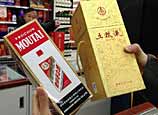
The central government released the National IV standard for gasoline two years ago but the deadline for national implementation was then set for 2014.
According to the most recent timetable, the State Council now calls for the country to implement the Nation IV standard for diesel in 2015.
Yet most parts of China still use the National III standard, which allows sulfur content of up to 150 ppm for gasoline and 350 ppm for diesel. The current standard in Europe is 10 ppm and in the US the restriction is 30 ppm.
Some areas of China even still allow the National II diesel standard that caps sulfur content at 2,000 ppm.
Market data shows that diesel trucks account for about a quarter of China's motor vehicles, but they generate nearly 80 percent of the total pollutants.
Though Beijing has now adopted the strictest fuel standards in the nation, experts warn that the poor quality diesel used in the surrounding cities will hinder the capital's efforts to improve air quality.
According to local media reports, the average number of commercial trucks - many of them low-tech diesels registered in areas with lower emission standards - that enter Beijing each night can hit 140,000.
And as the need for cleaner fuel becomes increasingly urgent, there is debate over who should pay the resulting higher costs.
Sinopec Corp, China's biggest oil refiner, recently said that it will invest about 30 billion yuan a year to improve fuel quality. By the end of this year the company will upgrade desulfurization technologies at 12 of its refineries.
Some analysts suggest the government should offer incentives such as tax rebates to encourage refinery improvements.


















 At 75, he travelled in Europe; at 98, he got a master's degree; at 102, he published an autobiography.
At 75, he travelled in Europe; at 98, he got a master's degree; at 102, he published an autobiography.


![]()
